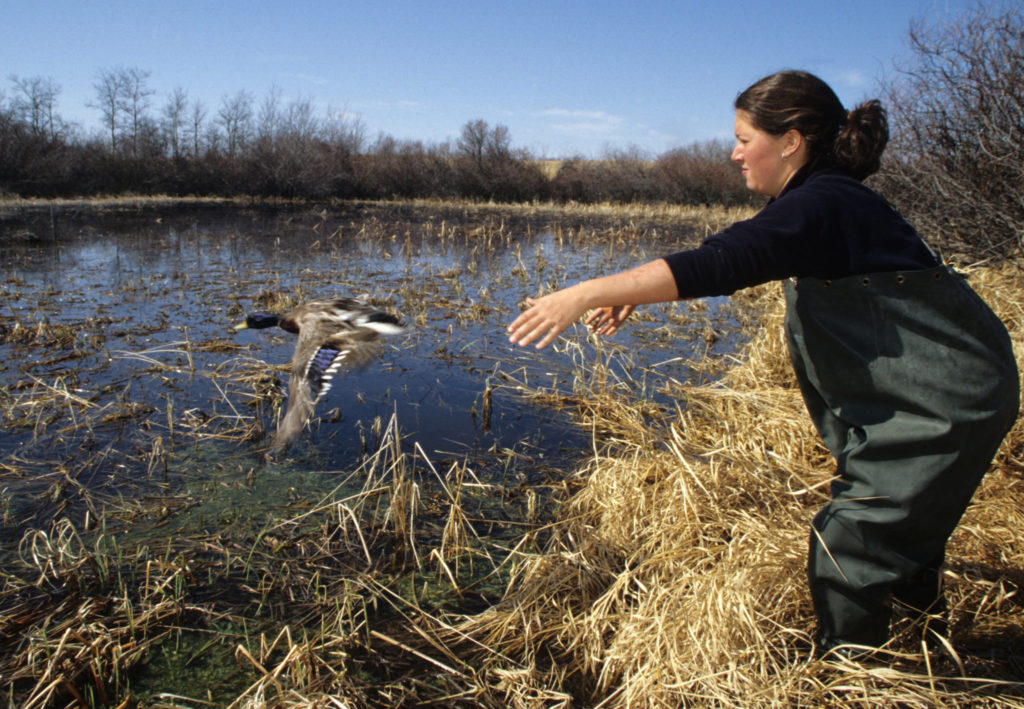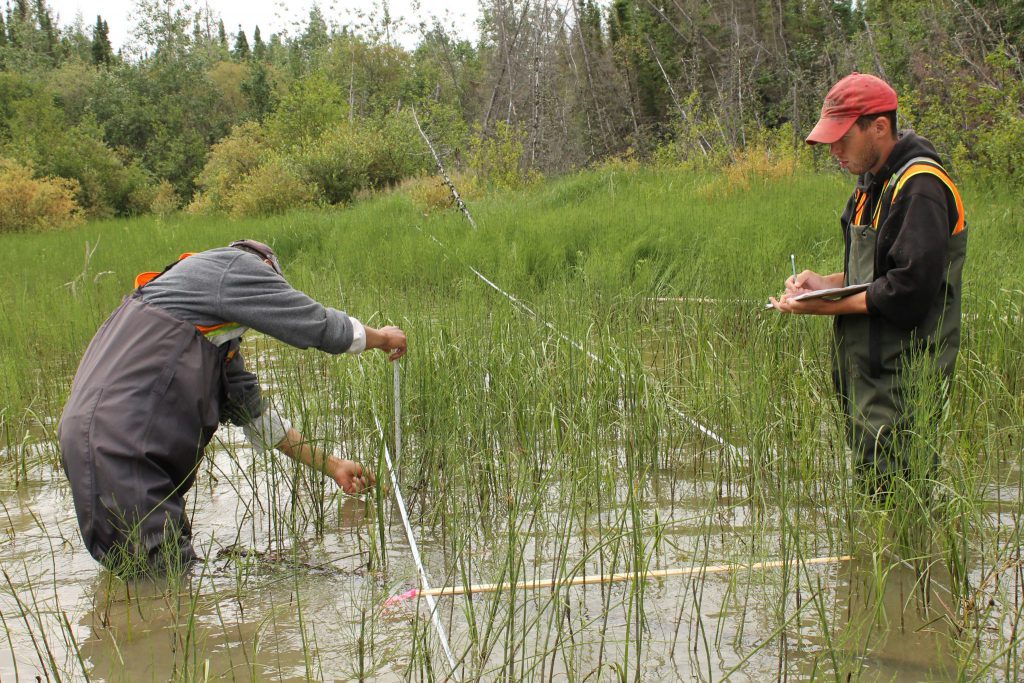Supporting Young Scientists
New graduate fellowship will help shape the future of wetland conservation
Ask a Ducks Unlimited Canada (DUC) researcher about their graduate student days, and prepare to be entertained. They’ll regale you with tales of early morning bird counts and learning to walk in boot-sucking mud. They’ll share stories about banding waterfowl and tracking their movements via radio transmitters.
But it’s not all fun and games. Graduate research is hard, demanding work. It requires significant financial and academic resources. Long hours spent travelling, writing and re-writing thesis chapters and poring over data are part of the challenge – and also the reward.
Through its Institute for Waterfowl and Wetland Research, DUC supports graduate students who are pursuing wetland and waterfowl research through its annual fellowship programs. Thanks to new funding from the Waterfowl Research Foundation, another student will be added to this list.
“Research is what makes successful conservation possible,” says Art Romaine, president of the Waterfowl Research Foundation. “Establishing the Waterfowl Research Foundation Graduate Fellowship is a unique privilege. It will support generations of young scientists who will continue to reach further and aim higher in pursuit of conservation excellence. Their efforts will make the world a healthier and more sustainable place for waterfowl – and for all of us, hunters and non-hunters alike.”
DUC was formed in 1938 by a small group of waterfowl hunters who recognized the importance of wetlands to waterfowl populations. As DUC undertook the research that guided its wetland conservation programs, it began to learn that these habitats do much more. They are one of the world’s most important ecosystems. Wetlands help prevent floods and droughts, naturally filter water before it enters rivers and lakes and store large amounts of carbon that would otherwise be released into the atmosphere as greenhouse gas.

Fellowship programs like the one funded by the Waterfowl Research Foundation are nurturing the next generation of conservation scientists, and expanding our understanding of the natural world in the process.
“We’ve seen firsthand how these fellowship programs can shape the careers of young scientists and also the future of conservation research,” says Dave Howerter, DUC’s director of conservation science. “Competition for these fellowships is fierce. Selected students are at the top of their class and have gone on to advance conservation research in some really compelling ways – in some cases as employees of Ducks Unlimited Canada.”
“The other great thing about the funding from the Waterfowl Research Foundation is that it will support graduate research in perpetuity,” says Howerter. “Imagining all the students who will be part of this cycle of conservation is pretty inspiring. It’s an incredible legacy, and a testament to the Foundation’s commitment to supporting conservation that’s based on sound science and sustainable solutions.”
The establishment of the Waterfowl Research Foundation Graduate Fellowship comes at an important time. In the fall of 2015, DUC launched an ambitious continental conservation campaign called Rescue Our Wetlands. In partnership with Ducks Unlimited organizations in the United States and Mexico, DUC is striving to change the face of conservation across the continent. Securing funding for two permanent graduate fellowships before the campaign concludes in 2018 was identified as a Rescue Our Wetlands legacy goal – something that would deliver important benefits now and into the future.
But perhaps just as exciting is the new chapter of graduate student adventures that waits in the wings. The Waterfowl Research Foundation Graduate Fellowship is poised to shape the future of wetland conservation by supporting those who have the courage and outdoor-loving spirit to follow their curiosity about the natural world.



